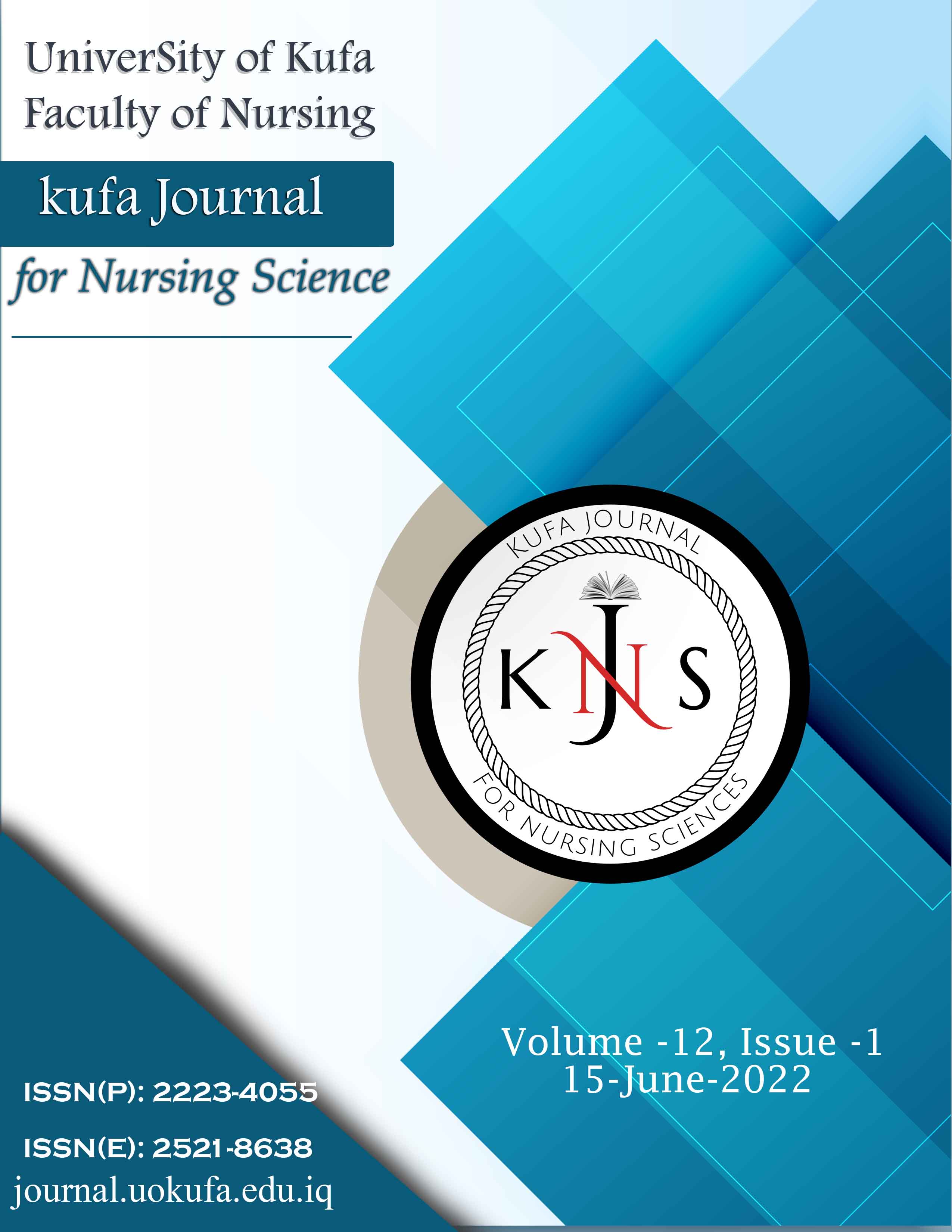Abstract
Objective: To assess nurses' awareness working in the primary health care field towards preventive measures for infection control in primary health care centers in Ramadi city.
Methodology: A descriptive study was conducted during the period from 10 April to 15 August 2021. The instruments was constructed by the researcher to reach the aims of the study using a non-probability sampling: purposive sample consist of (60) nurses working in the field of primary health care. A two-part questionnaire was used in the study, the first part contains information about the demographic data of nurses in healthcare centers and the second part contains selected questions about their awareness and knowledge regarding infection control procedures. Data were analyzed by descriptive and inferential statistics (t-test and correlational statistics) using SPSS software.
Results: The study found that the majority of the study sample (70 percent) were male, (50 percent) were in the age groups (30-39 years), (53.3 percent) were in the preparatory nursing, (50 percent) were about (16-20) years of the employee, and (76.7 percent) did not have a special training course, indicating that most nurses working in the healthcare field have a low level of infection control practice. The study concluded that nurses' awareness of preventive measures for infection control was at a low level.
Conclusion: According to the findings of this study, the majority of nurses working in primary health care centers had a poor level of awareness toward infection control.
Recommendation: In order to ensure compliance with infection control measures by nurses working in basic health care, the current study advocated the establishment and execution of a comprehensive infection control program in primary health care centers.
Methodology: A descriptive study was conducted during the period from 10 April to 15 August 2021. The instruments was constructed by the researcher to reach the aims of the study using a non-probability sampling: purposive sample consist of (60) nurses working in the field of primary health care. A two-part questionnaire was used in the study, the first part contains information about the demographic data of nurses in healthcare centers and the second part contains selected questions about their awareness and knowledge regarding infection control procedures. Data were analyzed by descriptive and inferential statistics (t-test and correlational statistics) using SPSS software.
Results: The study found that the majority of the study sample (70 percent) were male, (50 percent) were in the age groups (30-39 years), (53.3 percent) were in the preparatory nursing, (50 percent) were about (16-20) years of the employee, and (76.7 percent) did not have a special training course, indicating that most nurses working in the healthcare field have a low level of infection control practice. The study concluded that nurses' awareness of preventive measures for infection control was at a low level.
Conclusion: According to the findings of this study, the majority of nurses working in primary health care centers had a poor level of awareness toward infection control.
Recommendation: In order to ensure compliance with infection control measures by nurses working in basic health care, the current study advocated the establishment and execution of a comprehensive infection control program in primary health care centers.
Keywords
Awareness
infection control
Preventive measures
Primary healthcare centers.
